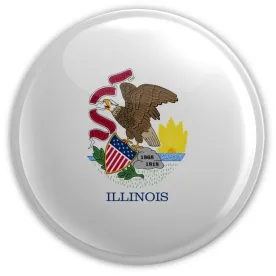On the morning of Thursday, February 3, 2022, the Illinois Supreme Court issued its long-awaited opinion in McDonald v. Symphony Bronzeville Park. That case asked the Court to determine whether Illinois’ Workers’ Compensation Act preempts claims for damages under Illinois’ Biometric Information Privacy Act (“BIPA”).
In fifty-two, focused paragraphs the Illinois Supreme Court compared and contrasted the Workers’ Compensation Act and BIPA, picked-apart the purpose and language of each statute and, ultimately, concluded that the Illinois Workers’ Compensation Act does not preempt claims for statutory damages under BIPA. In practical terms, the Court’s opinion means that employers can be subject both to liability for damages claims under BIPA as well as to liability under the workers’ compensation framework.
This dramatic blow to employers began as a dispute in Chicago, when employees of a nursing home objected to their employer’s practice of requiring that employees scan their fingerprints as a means of authenticating employees and tracking their time. The employees sued, alleging that the nursing home had violated their rights under BIPA by collecting, storing, and using their biometric identifiers and biometric information without first providing the proper releases and notices.
In response, the nursing home argued that the employees could not seek damages under BIPA because the injury to their privacy occurred at work, and so their exclusive remedy was to seek compensation for that workplace injury within the confines of the workers’ compensation framework. The Workers’ Compensation Act requires that, in exchange for compensation, the injured employees must relinquish their rights to sue for that same workplace injury, unless the injury (1) was not accidental; (2) did not arise from his employment; (3) was not received during the course of employment; or (4) was not compensable under the Compensation Act. The question before the Illinois Supreme Court, then, was whether the violation of an employee’s privacy rights under BIPA was an injury that “was not compensable” under the Workers’ Compensation Act.
The nursing home argued that the range of “compensable” injuries under the Compensation Act was broad ‒ broad enough to include any injury sustained at the workplace. The Court, however, held that whether an injury was compensable under the Workers Compensation Act depended not only on where the injury occurred, but also on the very nature of the injury. The Compensation Act, the Court explained, is intended to provide employees a financial-layover until they can work again. In this way, the Compensation Act contemplates only those physiological or psychological injuries that would prevent an employee from working. As additional evidence of this, the Court pointed to the fact that the Act expressly provides a compensation schedule that corresponds to death and to injuries to specific body parts.
The Court concluded that injuries of this nature are quite unlike the “personal and societal injuries” caused by violating BIPA. Therefore, BIPA violations are not compensable under the Workers’ Compensation Act. Accordingly, the Workers’ Compensation Act does not preempt BIPA claims, and an employee may seek compensation under both statutes.
This ruling not only redefined the boundaries of the privacy law landscape, but it also unleased a potential tidal wave of suits against employers that lower courts that have paused in anticipation of the Illinois Supreme Court’s ruling. This short-term reality, however, pales in comparison to the challenge that lies ahead for Illinois corporate-defendants as they must develop new strategies to mitigate BIPA litigation risk.
For more on this, stay tuned. CPW will be there to keep you in the loop.





 />i
/>i

